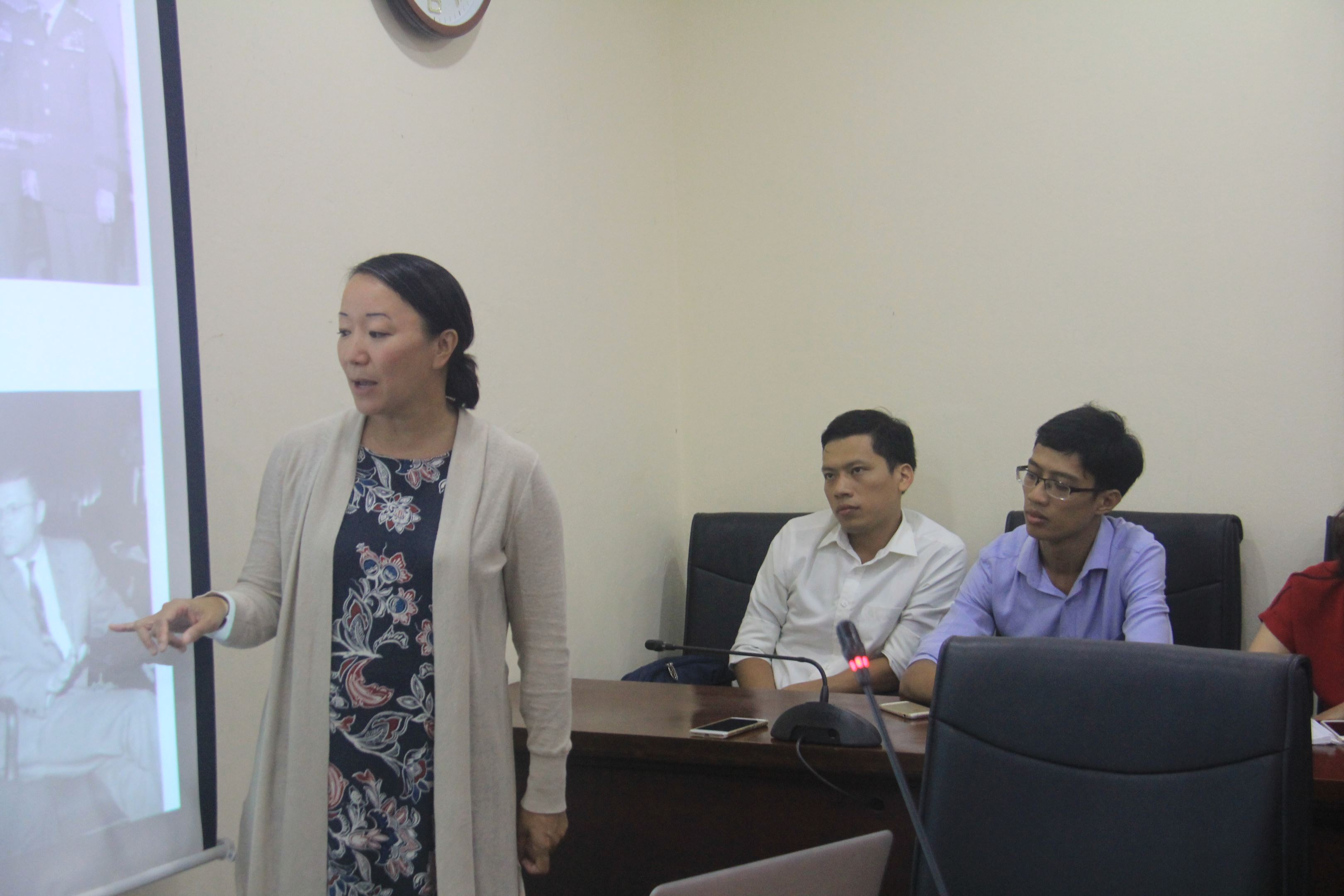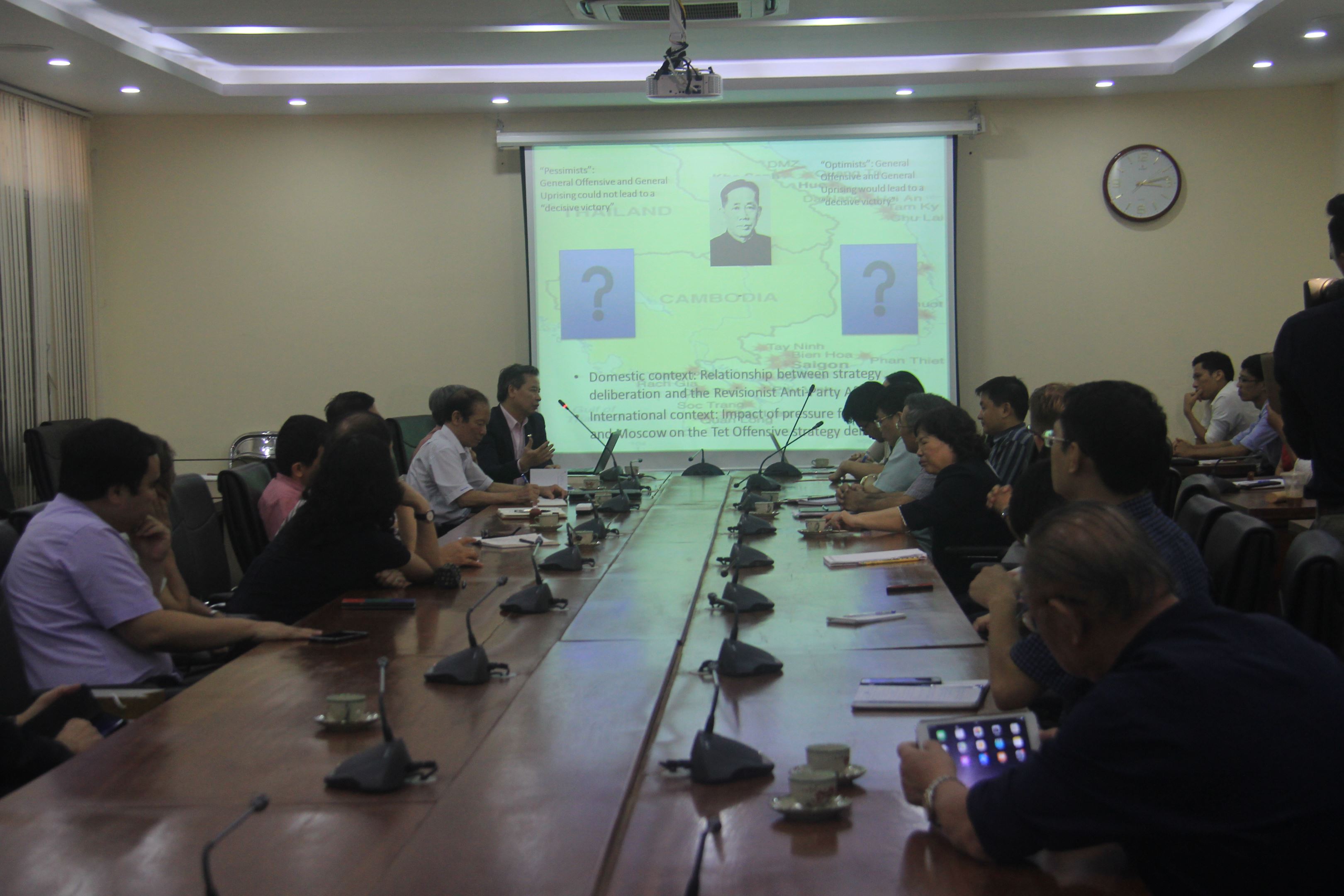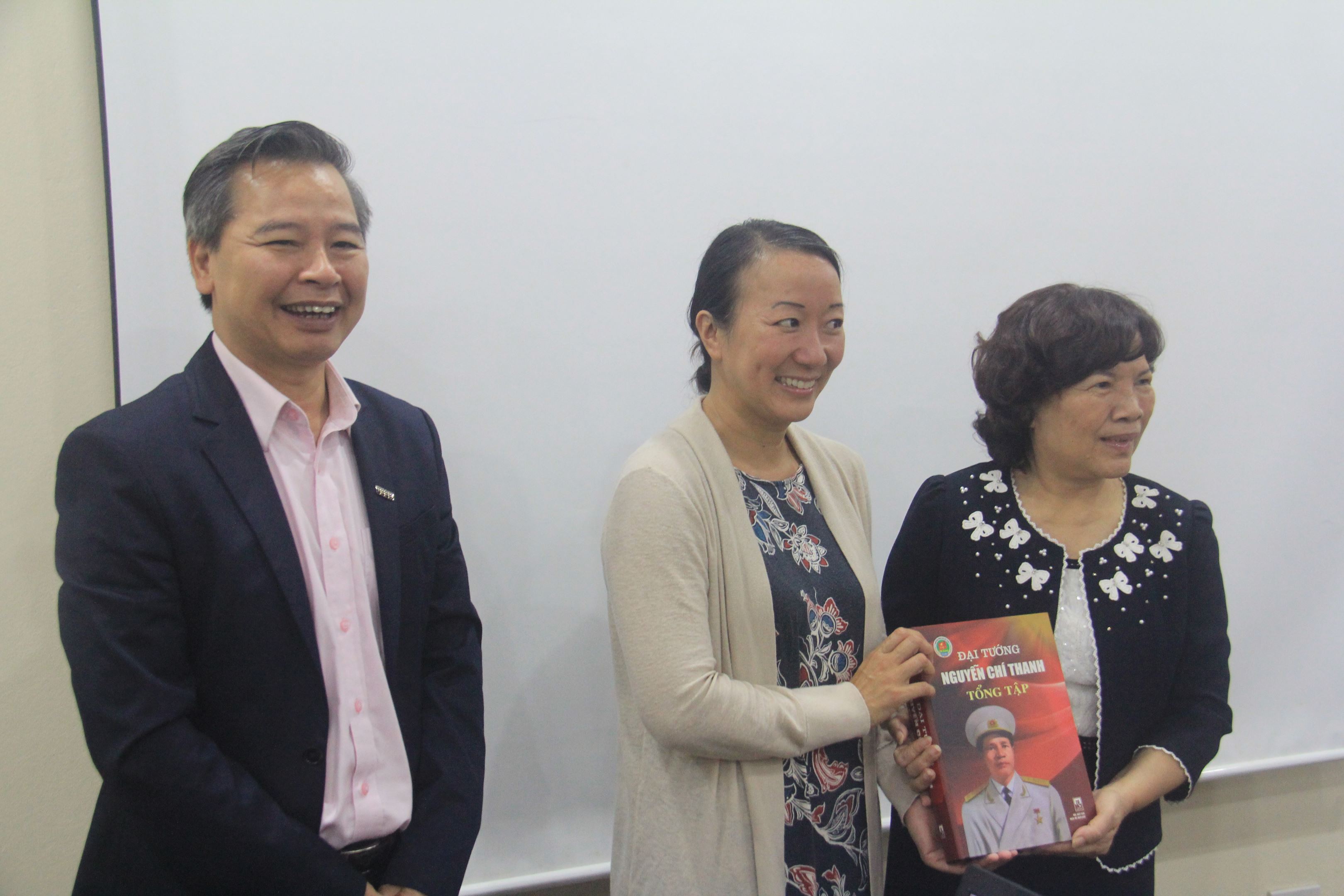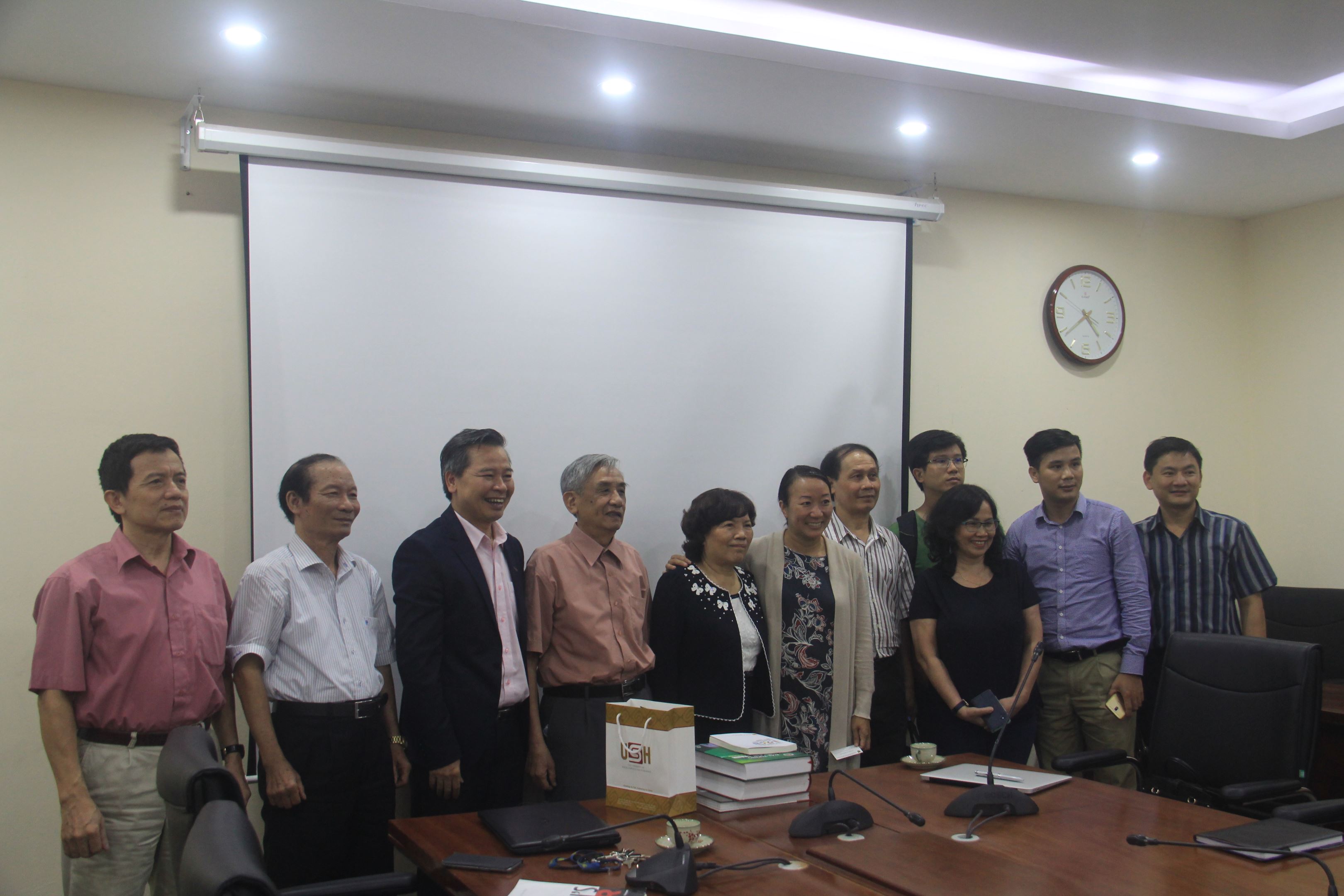Professor Nguyen Thi Lien Hang surveyed the policy-making process related to the 1968 Tet Offensive in the United States and Vietnam. According to her, at that time, two opposing viewpoints existed in the United States regarding President Lyndon B. Johnson's military strategy. The "pessimistic" faction, including Secretary of Defense Robert McNamara and Senator William Fulbright, believed that his policy could not help the United States win in Vietnam. The "optimistic" faction, including Chairman of the Joint Chiefs of Staff Earl G. Wheeler and Senator John Cornelius Stennis, wanted to escalate the war and increase the US military presence. They argued that Johnson was too cautious and conservative. In response, President Johnson chose a middle ground to satisfy both factions. Therefore, at the end of 1967, he recalled General William Westmoreland to help garner public support for his policy. In early January 1968, President Johnson ordered all U.S. generals in Vietnam to tightly defend the positions at Khe Sanh, as he considered it an imminent target that the North Vietnamese army could attack. He also believed that the U.S. and Saigon forces could hold Khe Sanh, thereby completely extinguishing the enemy's fighting capacity.

Through research of various sources, Professor Nguyen Thi Lien Hang also analyzed the policy-making process in Vietnam at that time. According to her, within Vietnamese politics, there were differences between two groups—optimistic and pessimistic—regarding the strategy and the possibility of ending the war in the South. However, the final decision still rested with General Secretary Le Duan. The decision to launch a general offensive began in late 1963 at the 9th Congress of the Communist Party of Vietnam, when the government of the Democratic Republic of Vietnam decided to use force to attack the South. In early 1965, General Nguyen Chi Thanh declared that guerrilla warfare could not be relied upon to defeat the Saigon government's army. He was supported by General Secretary Le Duan and General Vo Nguyen Giap. In May 1967, the Politburo convened a meeting to approve a strategic offensive, with objectives such as "within one year, destroy 3 to 5 American brigades... As for the South Vietnamese army, try to destroy a number of combat groups or regiments, and cripple 3 to 5 divisions."
However, according to Professor Nguyen Thi Lien Hang, this plan still faced some internal obstacles within the government of the Democratic Republic of Vietnam, especially after the death of General Nguyen Chi Thanh in July 1967. In an interview with the People's Army Newspaper in 2004, his successor, General Van Tien Dung, stated that the general offensive plan proposed by the Politburo should have had new objectives, goals, and methods of attack. At a Politburo meeting at the end of July 1967, President Ho Chi Minh further noted that the offensive plan needed to consider the possibility of protracted fighting, ensuring logistical support, the strength of the people, and the ability to sustain guerrilla warfare. In October 1967, at the Politburo meeting on the strategic plan for the 1967-1968 Winter-Spring-Summer campaign, President Ho Chi Minh, General Secretary Le Duan, and General Vo Nguyen Giap were all absent. However, the Politburo still implemented the plan by setting the start time for the General Offensive and Uprising during the Tet Offensive of 1968. In December 1967, the Politburo issued a resolution shifting the revolution in the South to a new phase, a phase of achieving decisive victory.

According to Professor Nguyen Thi Lien Hang, we can see certain similarities between the strategic decision-making processes of Vietnam and the United States regarding the Tet Offensive. Both sides had differing opinions on attack strategies and the likelihood of victory. In the United States, after facing political pressure, President Lyndon Johnson recalled General Westmoreland to discuss US military policy; in Vietnam, General Nguyen Chi Thanh was summoned from the South to the North to discuss the plan for a general offensive and uprising. Essentially, both sides believed in the possibility of a swift and comprehensive victory. However, she also acknowledged the relative nature of her comparisons and hoped for more research to clarify the details surrounding this significant historical event.
Following her presentation, Professor Nguyen Thi Lien Hang received comments and questions from the audience on issues such as the impact of the international political context, especially from the Soviet Union and China, on the decision to launch the Tet Offensive; the connection between the Tet Offensive victory and Vietnam's overall victory in the war; the unity of the Vietnamese leadership in planning the general offensive and uprising; and the influence of individual Vietnamese leaders in military decision-making during this period.


Professor Pham Quang Minh and representatives of the family of General Nguyen Chi Thanh took a commemorative photo with Professor Nguyen Thi Lien Hang.
Author:Tran Minh
Newer news
Older news